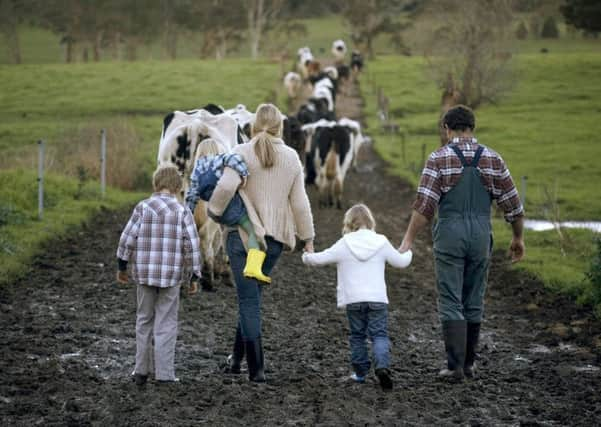Life in Scotland's rural communities is far from a stroll in the park


Delegates heard of familiar rural challenges such as poor transport links, fewer amenities, depopulation and fuel poverty, but there was also considerable positivity about rural living, with more open space, less crime and a sense of belonging to one’s neighbourhood.
As the event progressed it was clear that understanding this balance between benefit and deficit, rather than relying on what we think we know, was the key to supporting rural communities.
Advertisement
Hide AdAdvertisement
Hide AdThe Scottish Government has produced a short booklet, Rural Scotland, Key Facts 2015 which underlines this complexity. Economic inequalities include fuel poverty, with 63 per cent of the rural population considered to be fuel poor or extreme fuel poor, compared to 36 per cent in non-rural areas; and housing, with 47 per cent of our remote housing stock in a state of urgent disrepair compared to 36 per cent elsewhere.
However, other indicators are more positive, including longer life expectancy for our rural citizens by three years; and a healthy 73 per cent of rural residents feeling that their neighbourhood is a good place to live, compared to 52 per cent elsewhere.
Behind all averaged statistics, of course, are real individual lives, that are impacted by personal circumstances that often tip this benefit/ deficit balance in the wrong direction. What we must seek to understand to redress this balance is whether smaller, dispersed populations make this basic inequality more or less obvious.
We deliver services in remote and rural areas to around 1,300 people a year who are affected by serious mental health problems or mental illness, and whereas some of our members value peace and quiet as a tranquil oasis from noise and stress, others feel trapped in a prison of isolation and loneliness.
The lack of anonymity in small communities can mean having access to a solid community support network; or create the fear that disclosing difficult personal problems will expose people to gossip, judgement, stigma or even bullying.
Scottish Rural Action, the organisation behind the Rural Parliament event, has produced a draft manifesto which sets out some clear commitments on a range of issues. Of interest specifically to our organisation is a commitment to improving access to appropriate health and care services, with a welcome focus on developing better early intervention support.
The challenge in achieving this aim is in resolving the difficult economic practicalities involved in delivering viable, sustainable services for small numbers of people needing support across large distances. The manifesto calls for better transport links, staff training and development and incentives to recruit staff in very rural areas. This commitment is important, particularly in an economic environment blighted by shrinking social care budgets.
The manifesto also seeks solutions to mental health issues caused by rural social isolation. This complex issue goes beyond finding ways of improving existing services, and focuses on restoring the rural benefit/deficit balance that will help us plan better support in the future.
Advertisement
Hide AdAdvertisement
Hide AdThis crucial difference became apparent to us this year when the Scottish Rural College (SRUC) asked us to inform a rural mental health policy document. We realised that although we knew a great deal about existing mental health services and their value to people who used them, we could not provide any solid evidence for how far those existing services reflected the mental health needs of people in specific rural communities: there was no systematic data for rural mental service needs and planning.
This led us to design and run a joint survey with SRUC to find out how people with mental ill health experience rural life, with the aim of testing the anecdotal evidence, and gathering that missing data. The questionnaire let us compare results directly with the results of the Scottish Health Survey, and map data on to local authority and health board areas.
We received 343 responses, from almost every rural postcode, and although the responses are yet to be fully analysed, we now have data that challenges assumptions and allows us to understand some of the hidden inequalities in rural Scotland.
Frances Simpson, CEO Support in Mind Scotland